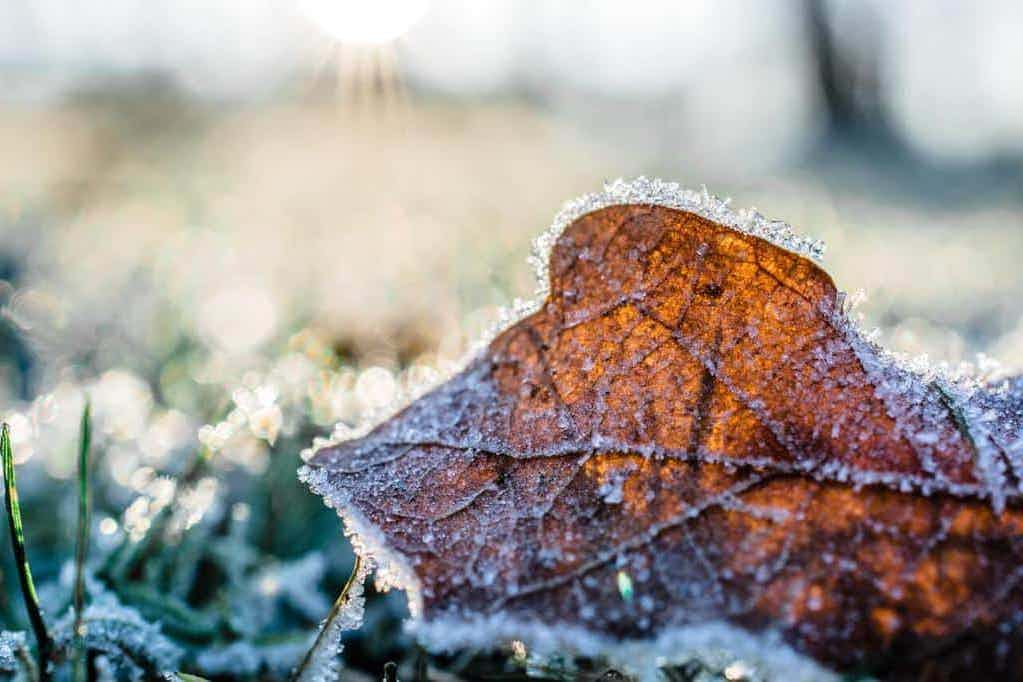As the cold weather starts to set in and winter approaches, it’s time to take stock of your garden. Winter is a quieter time in the garden. The pests have become less active, and there is little growing, no lawns to tend and no weeding to do. Even with it being a quieter gardening season, there is still plenty you can do in your garden.
If you followed our previous article on how to keep your garden going through autumn, then your garden will already be ahead of the game. You will have done most of the tidying and taking care of things needed. If not, then it isn’t too late to follow the tips in that article.
There is still plenty to do in the garden during winter. You can define much of the garden work needed over the winter months as ‘protect and prepare’. You need to protect your existing plants and trees whilst preparing your garden so that it is in fantastic condition and ready to welcome the spring. Let's look at what garden maintenance you can do during the winter season.
Take care of your trees
Well established trees, even deciduous varieties should cope with most of the weather that winter throws our way. Yet, it is worth checking over your trees for signs of damage or disease. It is any young trees you have growing that need a little extra help during wintertime.
The trunks of young trees tend to be softer. Without that hardened bark that older trees gain to protect them, these young trees can suffer in freezing temperatures. Hungry wildlife looking for a place to gnaw can also cause damage to young trees. Add tree protectors to the base of your tree, which will help with both issues. If you want to add a little extra protection, then you can also add some extra mulch over the ground at the base of the tree. This helps to protect the roots from the cold.
Don’t worry about the snow
Snow might seem like a disaster in the garden. It’s cold, wet and can make it challenging to be outside. Don’t worry! Snow isn’t something to worry about in the garden. A layer of snow can help your garden. Snow is a fantastic insulator, and a layer over your garden helps to protect the ground, adds moisture, and keeps the soil at one temperature.
However, you do need to ensure that you bring any plants that don't like the cold inside. If you can’t get them inside, try to cover them during snowy and freezing weather. Snow can also cause damage to trees and shrubs due to the weight of it laying heavy on branches. So, knock any layers of heavy snow from branches of trees and shrubs. This ensures the branches don’t break from the weight. This is also something to consider for your outdoor structures too. Snow can become surprisingly heavy; even a few layers can damage any weaker structures. To avoid this, grab yourself a broom and brush the snow from the roof of flimsy sheds and structures.
Mulch to protect your plants and your soil
The roots of your plants bring nutrients and life to your garden. These roots spread into the soil, taking nutrition from the earth into the plant. This process continues throughout winter, even when the ground is frosty.
Adding a layer of mulch to your flower beds can help keep the soil healthy and full of nutrients. Your plants depend on this nutrition to prepare for spring, so it is well worth doing. Spread mulch over your flower beds and focus on adding some around the base of your plants and shrubs. Mulch also creates a protective layer around the base of plants and keeps the soil at an even temperature.
The best type of mulch is a homemade one made from fallen leaves. Gather any dead leaves and allow them to rot a little before adding this mixture to your beds. If you don’t have access to leaves, you can buy alternatives from a garden centre.
Help your local wildlife
Many species of wildlife suffer during the winter. Food is scarce, and shelter can be hard to come by. Much of your garden wildlife will go into hibernation. Even these creatures still need help to stay safe and warm throughout winter.
You can help hibernating wildlife by trying not to disturb or damage their habitat during winter. Many animals snuggle down in overgrown areas and nestle into cracks in the bark. Some might even bury themselves in your compost heap. Avoid disturbing any log piles or areas wildlife might have hunkered down in.
The birds that haven’t migrated south for winter could also do with a helping hand. You can feed these birds by keeping your bird feeder well stocked with a good variety of nuts, seeds, and fat balls. It is also helpful to ensure that the birds have a good source of water to drink from. During freezing weather, breaking the ice on your birdbath will ensure your garden birds don’t go thirsty.
We spoke to James Scott from The Garden Company, who told Age Times: "Generally, a super tidy garden is often not wildlife-friendly. Let things continue to grow. Leave seedheads on for birds and delay cutting back plants. In addition, do remember to keep bird baths and water sources topped up during the chillier months. Otherwise, they can become frozen and more difficult to find for birds and other wildlife."
Add some winter plants
You can still enjoy a garden in bloom during winter. When the rest of the plants are hibernating, or you are taking care of them indoors, you can add some winter colour to your garden. All you need to do is cultivate and plant some winter plants.
Head to your local garden centre and get yourself some winter bedding plants for your garden. You can buy beautiful bedding plants such as winter pansies, violas, primroses, and cyclamen. These all add interest and colour to your garden, even on the dreariest of winter days. Plant these types of plants closer together than you might do in spring or summer. These plants don’t grow quite as much and won’t fill out the space after planting.
How to keep your garden going through winter
With so much to do during the winter, your garden will keep you busy! So, wrap up warm, grab a warming cup of tea or coffee and head outside to enjoy your garden. You can continue to ensure your garden is tidy and protected whilst enjoying the wildlife and winter blooms that these colder months bring.








